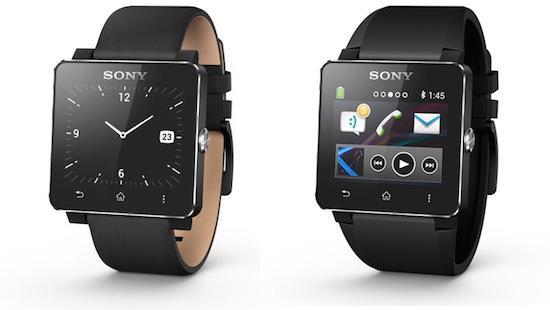
The first time I saw the movie "Dick Tracy," I knew immediately that I wanted an awesome watch on my wrist. And by awesome, I mean a watch that could do just about anything I'd ever want a watch to do, or even things I would never even think about a watch doing. Like, I wouldn't mind watching TV on my watch, for instance. Listening to music from it? Sure, why not. Oh, and let's not forget about making and receiving phone calls. Plus, throw in some other cool perks for good measure and you've got a deal on your hand, hypothetical watch manufacturer!
Since then, though, I've tempered my expectations. Now, I just buy a watch that I think looks good and tells me the time without effort. After all, if I have to push a button on my watch to get the time to show up on the display, well, something's wrong. (I'm not counting lighting up the display to see it in the dark, mind you. I'm talking about some "smart" watches out there that make you press a button to see the time.)
As you've noticed over the last few months, even well into 2012, the conversation about the mobile industry has centered on smartwatches and "the future." So many people have gone on and on about those pieces of wearable technology being the future of the mobile space, and that they'll be the perfect accessory to our smartphones. There's no denying that smartwatches have indeed taken plenty of their own limelight, and I'm not sure if I can say it's slowing down at all.
Indeed, Sony just announced their largest smartphone to date, the Xperia Z Ultra, and along with it a new version of their SmartWatch, the SmartWatch 2. I'll admit right now that while I think the Xperia Z Ultra is just way too big, they did a good thing announcing both the new smartphone and SmartWatch at the same time. That makes for a very attractive combination.
I almost wish they had boxed them together, and made a striking bargain for both high-end devices.

Companies behind Pebble, i'm Watch, and many others, are getting their own attention as they aim to create the next best piece of wearable technology. And, from the success and attention that these companies are getting, the masses are looking towards Apple, Samsung, Microsoft, Google, and still others to create their own version of the smartwatch. And hey, if they aren't going to create glove phones, then obviously a smartwatch is the next best bet.
Of course, when it comes to accessories, it will always come down to pricing. Unfortunately, I've seen many companies with their version of a smartwatch offer up limited amount of features, but a surprisingly high price tag. As I've articulated in the past, I don't think I could ever make myself buy a smartwatch for $399 or more. That just seems excessive. I've seen in comments sections all over the Internet that people seem to think the $100-$200 mark is just about perfect for a device that they strap to their wrist, and works in conjunction with their smartphone, and I tend to agree with that.
Especially if the hardware and software are up to par.
But, now hear me out here, what if smartwatches aren't the future? What if they're just an accessory, and nothing more? Like we've seen from Bluetooth headsets in the past, what if the smartwatch is destined to just become an "extra," or just another "bonus" to the main show: the smartphone? There has been a lot of talk about smartwatches becoming the "next best thing," but I'm not so sure that's a guarantee by any means.
I especially don't think it's even remotely possible if companies like Apple and Samsung don't make it happen. We've all heard the speculation that these companies, which also include Microsoft, Google, LG, and others, are working on their own smartwatches, and I wouldn't be all that surprised to find out that they are. However, if they don't push these devices to be the next best thing, then I highly doubt they will ever fall into that category.
Or become something more than what they already are: just an accessory that one can easily live without.
But if smartwatches, and maybe even wearable technology (like Google Glass) aren't the future, then what is? If these things are just "fads," and will eventually either fade out completely or just sit on shelves to be talked about in passing, what is the next big thing? Are we still putting all our chips on our smartphones? If so, what new features can they bring to the table to make us forget about wearable technology? Let me know what you think.